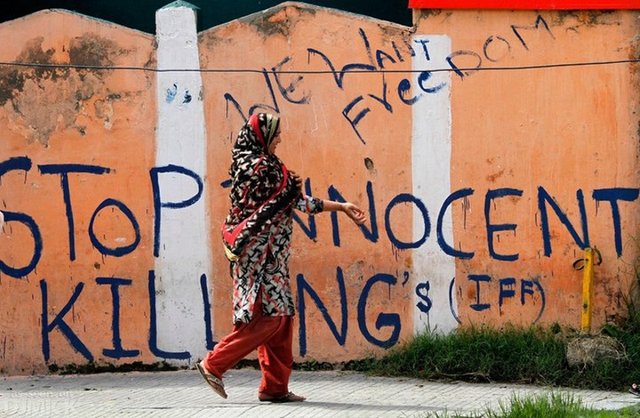The Kashmiri People Versus the Indian State
A sweeping social media gag; dozens of Kashmiri female students defiantly protesting Indian military troop presence; a Kashmiri man tied to an Indian military vehicle as a human shield against stone-pelting protesters. These are just some of the latest stories to come out of the Kashmir Valley in India's north-eastern state of Jammu and Kashmir, also known as Indian-administered Kashmir.
Since 1990 Jammu and Kashmir has been under suffocating Indian military presence under statutes such as the Armed Forces Special Powers Act and the Public Safety Act.
Jammu and Kashmir has three divisions: Jammu, Kashmir Valley and Ladakh. The heart of the repression and frequent curfews has been in the Kashmir Valley, which has a 97% Muslim population and is home to the state's summer capital Srinagar. In 27 years, more than 70,000 Kashmiris have been killed and many more have been injured or arrested in Indian military crackdowns.
Protests for independence or azadi in the Valley has been active since 1989, but has taken a renewed dimension in the last year since the death of a 22-year-old. In April 2016, Burhan Wani, a young social media star, supporter of a free Kashmir, and “the poster boy” of Kashmir’s new wave of armed struggle, was killed in a counterinsurgency operation. After his killing, Kashmiri journalist and New York Times writer Basharat Peer posted on Facebook:
Internet has been banned. Curfew has been imposed. Phones can't be reached. The mighty Indian state might have killed him but they haven't won. A 22-year-old in his death has shaken you.
Hi! I am a robot. I just upvoted you! I found similar content that readers might be interested in:
https://www.mintpressnews.com/how-hindu-nationalism-intensified-indias-brutal-repression-of-kashmir/238559/